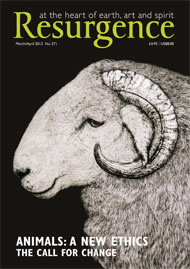It is a little strange reviewing Brett Mizelle’s exploration of all things pig, as I’m vegan.
Seeing this amazing animal dissected – in a literary sense – is in equal parts fascinating and frustrating. Fascinating, because pigs are such wonderful animals, full of joie de vivre and intelligence. Frustrating, because this is essentially a history of our subjugation, exploitation and murder of pigs on an almost unimaginable scale.
Mizelle does not set out to make an impassioned plea for the pig. What he does is catalogue our relationship with them – and it is important for us to understand this shared history if we have any real hope of ending their suffering in the future, although of course this shared history is based on our exploitation of their good nature and our desire to consume their flesh. Pork is the mostly widely eaten meat in the world – a sobering fact that Mizelle is keen to point out.
He acknowledges the paradox that, whilst there are more pigs alive than ever before, it is harder than ever to see them. These days the majority of pigs are locked away on vast factory farms. Mizelle also acknowledges that many people are “either unaware or in denial” about where pig meat actually comes from.
For me, the most interesting question the book raises is why pigs are such popular animals (in children’s stories and in films such as Babe), but simultaneously many of those same people who love pigs will still happily consume pig meat.
The anthropomorphism label is often thrown at those who forgo meat for ethical reasons, but Mizelle suggests that these fanciful representations of the pig (such as cartoons where the pig is seemingly asking to be eaten) allow meat eaters to create a caste system of sorts that enables them to indulge in fantasy whilst suppressing both the reality of the situation and their innate compassion.
Another distancing tactic – and this is not peculiar to the pig, of course – is the language used to describe bad human behaviour by referencing animals. From ‘piggishness’ to ‘male chauvinist pig’, these terms allow society to indulge in a kind of mass schizophrenia and accentuate the differences between our species in a negative way.
Mizelle asks, “What is a pig?” (a simple enough question with a surprisingly in-depth answer) and looks at how humans have taken them from the wild, and how, in turn, pigs have changed in appearance. This history stretches back to Ancient Rome and beyond.
Of course, humans share major physiological traits with the pig – which is why pigs have been subjected to everything from horrific medical experiments to the effects of nuclear weapons. (Churchill was fond of saying that pigs would look you straight in the eye.) But Mizelle stops short of suggesting that by eating pigs society flirts with quasi-cannibalism and sanctioned slavery. However, those uncomfortable comparisons remain for meat eaters – if they are willing to confront them.
Although Pig is not an overt call to stop eating meat, an open-minded reader would find it difficult to justify what we have done to them over the past few thousands of years. And of course the worst excesses of our cruelty – factory farms, farrowing crates (so small that sows cannot turn around for weeks at a time), routine mutilations and more – have been the product of the past century, driven by consumer and producer greed.
The book closes with the reappearance of the wild pig (including the boars who were once indigenous to the UK but were hunted to extinction). Sadly it comes as no great surprise that these animals are routinely persecuted by those who see a dug-up flowerbed as a capital offence. But it is heartening that there are champions too of both wild and farmed pigs.
Pig is an accessible overview and often captivating, but I would have liked Mizelle to highlight his wife’s vegan position more forcefully, as the best way to end the suffering of these incredible animals. Hopefully readers will draw this conclusion regardless. After all, what other conclusion could there be?






